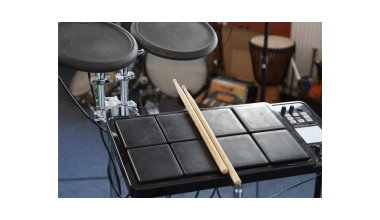For any singer, the voice is the most important instrument. It needs care, practice, and regular exercise to perform at its best. Whether you’re a beginner or a seasoned vocalist, vocal exercises for singers are the foundation of a strong and healthy voice.
In this comprehensive guide, we’ll explore the best vocal exercises, their benefits, and how to incorporate them into your daily routine. From warm-ups to advanced techniques, you’ll find everything you need to elevate your singing skills.
Why Are Vocal Exercises Important for Singers?
Vocal exercises are not just warm-ups—they’re essential for developing and maintaining your voice. Here’s why:
- Improved Vocal Strength: Exercises help build the muscles needed for singing.
- Pitch Accuracy: Regular practice improves your ability to hit the right notes.
- Extended Vocal Range: Strengthening your voice can help you sing higher or lower.
- Breath Control: Learn to manage your breath for sustained and powerful singing.
- Vocal Health: Prevent strain and injury with proper techniques.
If you want to sing better and protect your voice, regular vocal exercises are non-negotiable.
How to Prepare for Vocal Exercises
Before starting your vocal exercises for singers, prepare your body and mind:
- Hydrate: Drink plenty of water to keep your vocal cords lubricated.
- Relax Your Body: Tension can affect your voice, so do light stretches or yoga.
- Warm-Up Your Voice: Begin with simple humming or lip trills.
These steps will set the stage for effective vocal practice.
Essential Warm-Up Exercises for Singers
1. Lip Trills
Lip trills are great for warming up and relaxing your vocal cords.
- How to do it: Blow air through your lips to create a buzzing sound. Add scales as you trill.
- Benefits: Improves breath control and loosens vocal cords.
2. Humming
Humming gently warms up your voice and improves resonance.
- How to do it: Hum a simple melody or scale. Keep your lips lightly closed.
- Benefits: Encourages nasal resonance and vocal cord flexibility.
3. Sirens
Sirens help you transition smoothly between registers.
- How to do it: Glide from your lowest note to your highest, like a siren sound.
- Benefits: Strengthens your vocal range and reduces strain.
Warm-ups like these are essential before diving into more advanced vocal exercises for singers.
Vocal Exercises for Breath Control
Breath control is vital for powerful and sustained singing. These exercises focus on diaphragmatic breathing:
1. Diaphragm Breathing
Strengthen your diaphragm with this exercise.
- How to do it: Breathe deeply, expanding your belly rather than your chest. Exhale slowly while counting aloud.
- Benefits: Improves lung capacity and breath management.
2. Sustained Notes
Hold notes to improve breath control and stamina.
- How to do it: Choose a note and sustain it as long as possible, focusing on steady volume and pitch.
- Benefits: Develops consistency and control.
3. Breath Pulses
Practice quick bursts of breath to build control.
- How to do it: Inhale deeply and exhale in short, controlled bursts.
- Benefits: Enhances precision in breathing for fast-paced songs.
Mastering breath control is a cornerstone of effective singing.
Exercises to Improve Vocal Range
Expanding your range allows you to sing more challenging pieces. Here are some exercises to help:
1. Scale Practice
Singing scales improves your accuracy and range.
- How to do it: Start at a comfortable pitch and sing up and down the scale. Gradually increase the range.
- Benefits: Strengthens vocal flexibility and precision.
2. Octave Leaps
Practice jumping between octaves.
- How to do it: Sing a note and jump to its octave above or below. Repeat with different notes.
- Benefits: Builds control and confidence in large intervals.
3. Glides
Glides help smooth transitions between notes.
- How to do it: Slide from a low note to a high note and back down.
- Benefits: Reduces strain and improves vocal agility.
With consistent practice, you’ll notice improvements in both high and low registers.
Articulation Exercises for Singers
Clear articulation makes your lyrics understandable. These exercises improve enunciation:
1. Tongue Twisters
Fun and challenging, tongue twisters improve diction.
- Examples: “Red leather, yellow leather” or “She sells sea shells by the sea shore.”
- Benefits: Enhances clarity and tongue flexibility.
2. Consonant Drills
Focus on crisp consonants.
- How to do it: Sing phrases emphasizing consonants like “t,” “d,” or “k.”
- Benefits: Improves vocal clarity and reduces mumbling.
3. Vowel Sounds
Practice open vowels to improve tone.
- How to do it: Sing “ah,” “ee,” “oo,” and other vowels on different pitches.
- Benefits: Encourages resonance and tonal consistency.
Articulation exercises are essential for delivering lyrics with precision.
Advanced Vocal Exercises for Experienced Singers
For seasoned singers, advanced techniques push your abilities further:
1. Mix Voice Exercises
Develop your mixed voice to blend chest and head registers.
- How to do it: Practice transitioning between registers on scales or sirens.
- Benefits: Creates a seamless vocal range.
2. Vibrato Control
Improve vibrato speed and depth.
- How to do it: Sing a sustained note and add a natural vibrato by relaxing your throat.
- Benefits: Adds expressiveness and control to your singing.
3. Dynamic Variations
Practice singing loudly and softly within a phrase.
- How to do it: Sing a line, starting softly and gradually increasing volume, then reverse.
- Benefits: Enhances emotional expression and control.
These advanced vocal exercises for singers are perfect for taking your voice to the next level.
How Often Should You Practice Vocal Exercises?
Consistency is key when it comes to vocal training. Here’s a suggested routine:
- Daily Practice: Spend 15-30 minutes on vocal exercises.
- Before Performances: Do a thorough warm-up.
- Weekly Challenges: Try new techniques or exercises to expand your abilities.
Vocal Health Tips for Singers
In addition to exercises, maintaining vocal health is crucial:
- Stay Hydrated: Drink water throughout the day.
- Avoid Overuse: Rest your voice after intense practice or performances.
- Warm Down: Do light humming to relax your vocal cords after singing.
- Avoid Irritants: Steer clear of smoking and excessive caffeine.
Healthy habits ensure your voice stays in top condition.
Conclusion:
Vocal exercises are the foundation of any singer’s journey. They improve strength, control, and range while protecting your voice from strain. Whether you’re a beginner or a professional, incorporating these exercises into your daily routine can make a world of difference.
From warm-ups to advanced techniques, this guide provides everything you need to develop your voice. Start practicing today and unlock the full potential of your singing.
Related Articles:
For further reading, explore these related articles:
- Vocal Warm-Up Exercises for Singers | Master Your Voice Today
- Vocal Exercises for Singers | Strengthen and Improve Your Voice
- The Ultimate Guide to Hindi Singers from A to Z
For additional resources on music marketing and distribution, visit Deliver My Tune.




